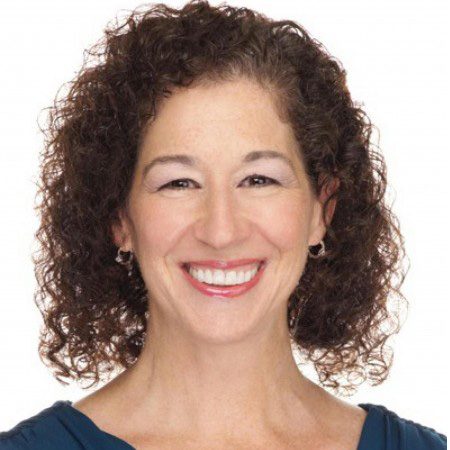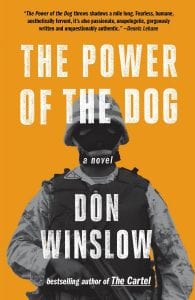Tomorrow is International Literacy Day and the occasion got me reflecting about how fortunate I am to be able to read. Beginning with stories read to me by others, evolving to postponing bedtime using a flashlight to read under the covers, to summer trips to the bookmobile and now to stealing time from life’s other priorities, books have inspired my thinking and my life.
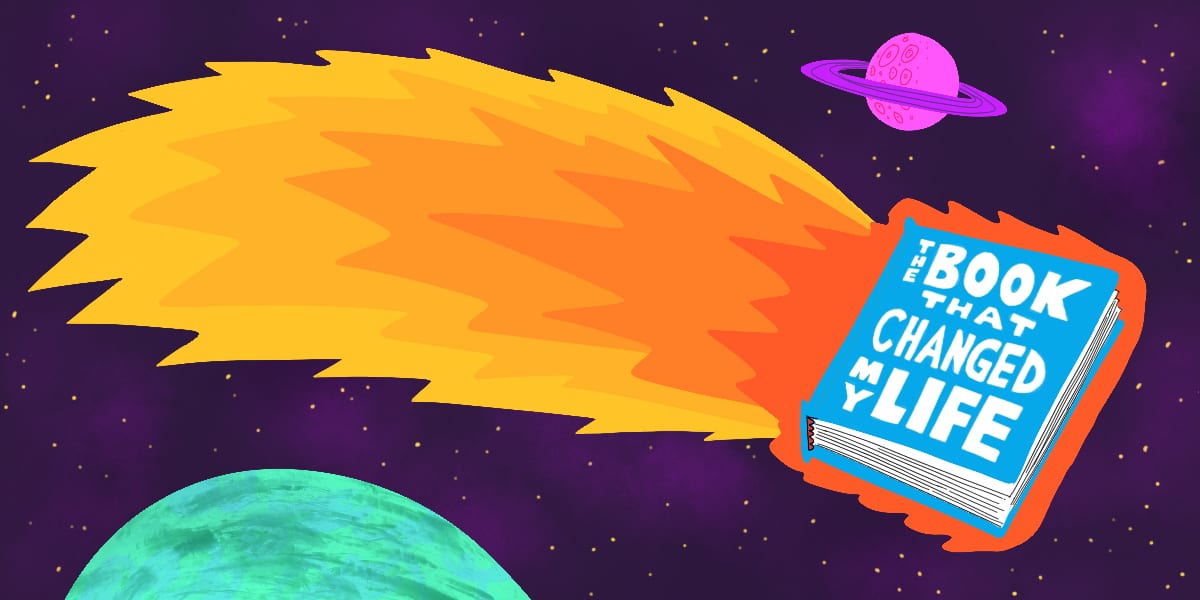
I’m also lucky to work for a firm that is just as fiercely passionate about literacy as I am. That passion is the reason we have a decade-long partnership with Room to Read, a nonprofit organization dedicated to improving literacy and gender equality in education in the developing world. Their motto: World Change Starts with Educated Children.
As I thought back over the passion that Ketchum and I share for the written word, I decided to consider all the books that have shaped my view of the world and select one worthy book as having had the greatest impact on me. As I pondered my own choice, I asked my fellow Ketchum book lovers to share a book that changed their life and how it made them a better professional and/or communicator.
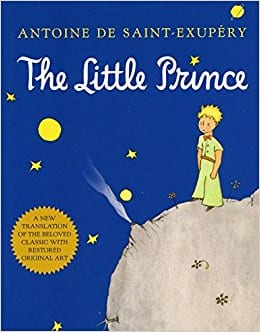 Ruth Yearley, Partner, Director of Insight & Strategy, London:
Ruth Yearley, Partner, Director of Insight & Strategy, London:
It is such a small book but deals with massive thoughts, “The Little Prince,” by Antoine de Saint-Exupéry. From the moment I saw that picture of a hat – which is in fact a boa constrictor eating an elephant – I was hooked. Why should everyone see things the same way? That’s what it taught me, a good lesson for life and work. The story is a quest, a story of adventure and exploring and of course love. I love that the book can be open to interpretation and so the story of the Little Prince can be anyone and everyone’s own story.
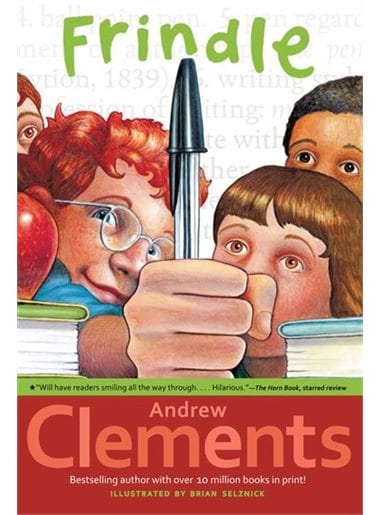 Valerie Pritchard, Associate Director, Digital Strategy, NYC:
Valerie Pritchard, Associate Director, Digital Strategy, NYC:
For a career-related book, “Frindle,” by Andrew Clements. I read it in second grade, and in the most PR terms it’s about a kid who rebrands pens as “frindles” to be obnoxious and prove a point (a kid after my own heart). I loved the idea that anyone could start a grassroots movement to change something – even if it was totally inconsequential – and that the idea could come from anyone.
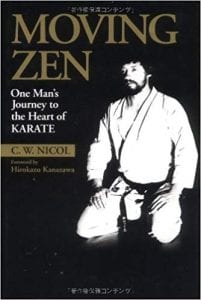 Jim Lin, Partner, Digital Strategist & Creative Director, San Francisco:
Jim Lin, Partner, Digital Strategist & Creative Director, San Francisco:
“Moving Zen: One Man’s Journey to the Heart of Karate (Bushido – The Way of the Warrior),” by C. W. Nicol. A practitioner of martial arts for 20+ years, I was given this book by one of my instructors right before my Shotokan Black Belt test decades ago. This book helped me understand that it’s the milestones and small achievements along the way to any “black belt” in life that truly make the warrior. The belt is a symbol, not the goal. I’ve since applied that to all that I do, from raising a family to building my career.
Sabine Hueckmann, CEO, Ketchum Germany, Stuttgart:
“The Power of the Dog” and its sequel “The Cartel,” by Don Winslow. Although fiction “inspired by true events,” these books taught me a lot about international relations, geopolitics, country business models and how diversity of interests is being dealt with.
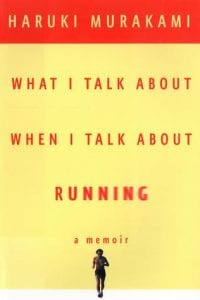 Myriam Khan, Associate Manager, Corporate Communications, London:
Myriam Khan, Associate Manager, Corporate Communications, London:
“What I Talk About When I Talk About Running,” by Haruki Murakami. I’ve read this book twice, the first time when I was 21, and the second time most recently at 31, and each time had a completely different experience. This book has really shaped how I think about my own physical and intellectual capabilities, and why, really, you should be your only competition.
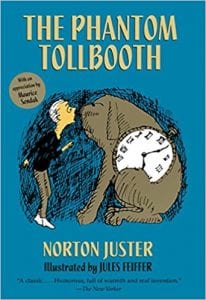 Jeff Lewonczyk, Senior Manager, Creativity & Content, NYC:
Jeff Lewonczyk, Senior Manager, Creativity & Content, NYC:
“The Phantom Tollbooth,” by Norton Juster, transformed me in the third grade from a kid who liked to read to someone who counts reading as a fundamental part of his identity. As a fantasy story that worked on an allegorical level, and turned concepts and abstractions into relatable characters, it completely blew my mind by showing me the amazing new worlds that words could create. (The illustrations by Jules Feiffer weren’t half bad either.)
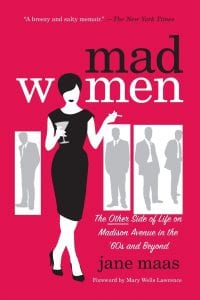 Vivian Chen, Account Director, Beijing:
Vivian Chen, Account Director, Beijing:
“Mad Women: The Other Side of Life on Madison Avenue in the ’60s and Beyond,” by Jane Maas. Right away the cover caught my attention – a woman in a little black dress holding a martini against a red background. Inside, the book is filled with history and gossip about the advertising and communication industry, from a woman’s perspective. It helped me get to know how the first-generation communicator worked and – even though things have changed considerably – helped me understand how other countries operate in the same industry.
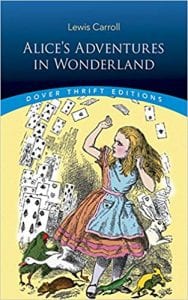 Catherine Dorofeeva, Director, Finance, Moscow:
Catherine Dorofeeva, Director, Finance, Moscow:
That’s easy. “Alice in Wonderland,” by Lewis Carroll (1865), an always-on inspiration from a straightforward but polite girl who is neither afraid of surreal worlds nor of heavyweights – very useful for a comms professional!
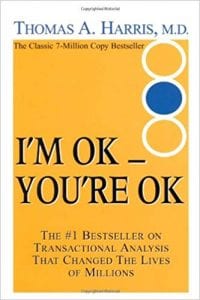 Manuela Rost-Hein, Senior Account Director, Berlin:
Manuela Rost-Hein, Senior Account Director, Berlin:
“I’m OK – You’re OK,” by Thomas Anthony Harris. I read the book as a 17-year-old teenager and it changed my perspective on what people do and why they do it – very important for communication too.
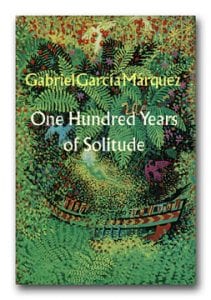 Alex Fencl, Account Supervisor, Atlanta:
Alex Fencl, Account Supervisor, Atlanta:
For its elaborate character development and for the originality in narrative structure, I choose “One Hundred Years of Solitude,” by Gabriel Garcia-Marquez. It revolutionized the way I think of literature and the way I approach storytelling.
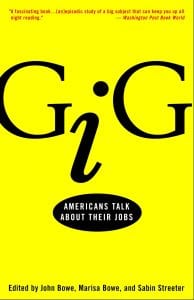 Julia Dranov, Organizational Effectiveness Consultant, NYC:
Julia Dranov, Organizational Effectiveness Consultant, NYC:
When I was in college I read “Gig,” by Marisa & John Bowe, published in 2001, featuring 120 monologues by Americans in completely different jobs (truck driver, CEO, actress, software engineer, florist, etc.) talking about their work. This book really opened my eyes to how the work we do, even when it might at first seem ordinary or mundane, impacts us and the world, especially from a socioeconomic perspective.
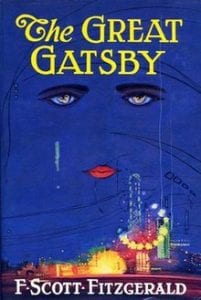 Jamey Peters, Partner, Managing Director, Retail North America, Dallas:
Jamey Peters, Partner, Managing Director, Retail North America, Dallas:
“The Great Gatsby,” by F. Scott Fitzgerald. I read it for the first time in the 10th grade and pick it up often. It’s about the coming of age and defines how one should treat others by depicting many story lines of not the way one should act and/or treat others. A classic tragedy and ageless read.
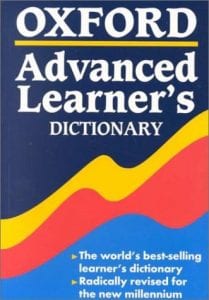 Francis Frietsch, Trainee, Ketchum Pleon, Stuttgart:
Francis Frietsch, Trainee, Ketchum Pleon, Stuttgart:
The “Oxford Advanced Learner’s Dictionary” was and still is a very useful book for me. Helped me during my studies and whenever writing English texts – I also love to discover unknown words in it.
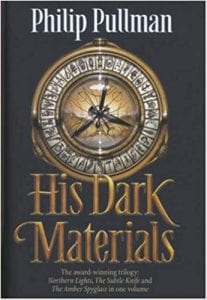 Bailey Roy, Director, Digital & Social Analytics, NYC:
Bailey Roy, Director, Digital & Social Analytics, NYC:
The “His Dark Materials” trilogy (“The Golden Compass,” “The Subtle Knife,” “The Amber Spyglass”), by Philip Pullman, has stuck with me as an unforgettable journey. A true coming of age story that spans multiple generations, it reminds you to look at the world around you, experience things deeply, and take your imagination to limitless areas. Also, the main character is a fiercely passionate female, Lyra, teaching you to take control of your own future.
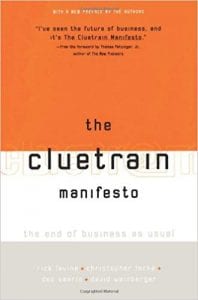 Stephen Waddington, Chief Engagement Officer, London:
Stephen Waddington, Chief Engagement Officer, London:
“The Cluetrain Manifesto,” by Rick Levine, Christopher Locke, Doc Searls, and David Weinberger. The Cluetrain Manifesto, written in 1999, foretold almost all changes that the Internet is having on the business of public relations and organizational communication today. It’s a set of 95 theses organized as a manifesto for organizations operating in Internet- and social network-connected markets. As the Internet’s impact on society and organizations will take generations to work through, Cluetrain continues to be a window on the future.
For me, after much consideration, I realize that my favorite book is whatever book I am reading at the moment. How could it not be? Reading good writing is such an immersive experience that it transports you to another reality – like going on an amazing trip to a place you’ve never been before. Last night I finished reading “Insomniac City New York, Oliver, and Me,” by Bill Hayes. It is beautiful, raw and authentic. The perfect mix of tightly woven words punctuated by photos, it eloquently captures the beauty of relationships between people and with a city I love. It’s a book that is so well written it draws you in, overtakes you and engrosses you in its reality, while also making you believe you could write one too.
As you think about your own choice, I invite you to take a look at a list of books that “challenge the way you look at the world” curated by Room to Read CEO Geetha Murali.
I hope you pick up a book and read. In my case, I have no doubt it will become, my new favorite book.
